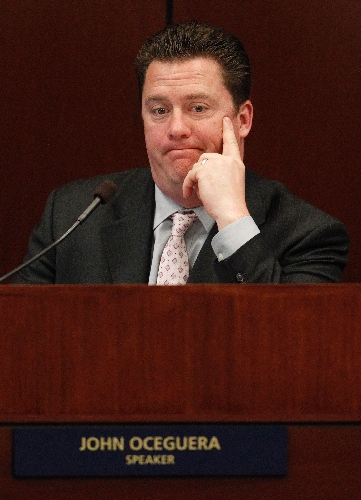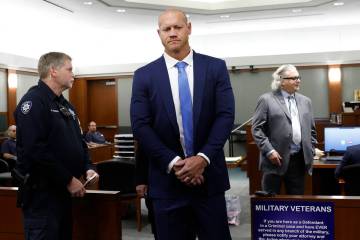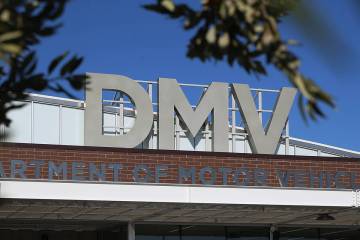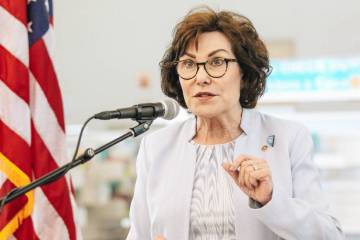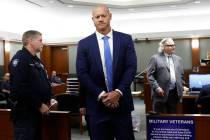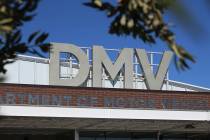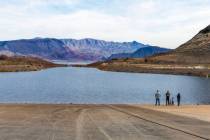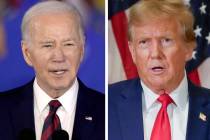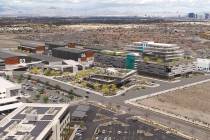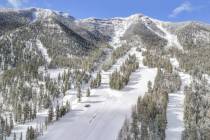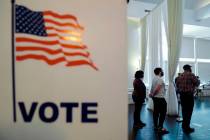Sandoval, lawmakers study line of credit to balance budget
CARSON CITY -- A leading Democratic lawmaker said legislators and Republican Gov. Brian Sandoval are considering a line of credit, mining taxes and revenue from abandoned casino winnings as options to balance the state's next two-year budget.
Assembly Speaker John Oceguera, D-Las Vegas, said those funding sources would be in addition to delaying the scheduled expiration, or sunset, of about $679 million in existing taxes.
The new details emerged Saturday as Sandoval and lawmakers sought to rebuild a budget-making process blown apart Thursday by a Nevada Supreme Court ruling that struck, by Sandoval's estimate, $657 million from his $6.1 billion budget proposal.
They're trying to finish negotiations in advance of the scheduled conclusion of the 120-day legislative session at 1 a.m. on June 7, but so far neither side has identified sources for all the money they'll need to balance the budget.
"At the end of the day we are both coming up short," Oceguera said.
If Sandoval were to agree to extend the sunset date, it would still leave a budget gap of about $200 million to $300 million, Oceguera said.
Dale Erquiaga, senior policy adviser to Sandoval, confirmed that lawmakers and the governor are about $300 million apart, but wouldn't comment on how they might close the gap.
"Democrats have proposed to spend $300 million more through their add-back process and the Governor has not agreed to these increases," Erquiaga said in a written statement, adding that he wouldn't comment on specific ideas to close the gap. "Legislative leadership does not speak for the Governor on these options."
Options to close the gap include reviving a proposal to establish a $140 million line of credit from the local government investment pool, approving Assembly Bill 219, which could generate up to $20 million annually by sweeping money from unclaimed slot machine winnings to the state, and generating about another $60 million by reducing tax deductions available to the mining industry.
Also on the table is a bill that would let voters decide whether the state should institute a tax on business revenue.
Democrats had sought to implement the tax through the Legislature but gave up after determining they were unlikely to get enough Republican support for the two-thirds majority needed for a tax increase.
But they could move through a bill to punt the question to the people without Republican support in the Legislature if Sandoval doesn't veto the plan.
"I think that would still be a better alternative than doing absolutely nothing," said state Senate Majority Leader Steven Horsford, D-Las Vegas.
So far, though, Sandoval has indicated he is unwilling to consider continuing the $679 million in taxes on sales, payroll, business licenses and car registration that are set to expire.
He's also said any extension of any sunsets should come with reforms to government spending, which haven't been detailed.
Sandoval and many Republicans think "there is more than enough in the sunset taxes to cover (the gap) and we may not even need all the sunset taxes," according to a source close to the budget talks.
Sandoval's stance might not matter, however, if Democratic lawmakers can convince Republican colleagues to join in delivering the two-thirds majority needed to raise taxes and override Sandoval.
Before the court ruling, Republicans in the Assembly had demanded extensive reforms to collective bargaining and benefits for public employees, education, construction defect liability and prevailing wage.
State Senate Republicans had refused to consider voting in favor of any taxes.
Since the ruling, at least some Republicans have softened their position, particularly on the sunset taxes.
"I think you have to use them," said state Sen. Joe Hardy, R-Boulder City.
The court ruling that blew up Sandoval's budget proposal was the result of a 2010 move by the Legislature and then-Gov. Jim Gibbons to sweep $62 million from the Clean Water Coalition in Southern Nevada into the general fund that judges unanimously deemed unconstitutional.
The ruling stated the money grab violated a provision of the constitution that says "all laws should be general and operate uniformly throughout the state," and threw into question other instances in which Sandoval sought to take money from individual counties and spend it statewide.
In response, Sandoval struck from his budget $247 million in school construction bond reserve money that had been shifted to school operations, $225 million in a voter-approved diversion of room taxes, about $83 million in property tax diversions and $38.2 million in local property taxes that formerly were used to cover hospital indigent accident funds.
Before the ruling Thursday, budget talks between Sandoval and Democratic lawmakers were virtually nonexistent.
Since the ruling came down and Sandoval decided to reconsider his position on the sunset taxes, however, lawmakers and the governor have been negotiating day and night to reach an agreement.
Sen. Sheila Leslie, D-Reno, said, "What has shifted is the governor moving from 'no' to negotiation."
Contact reporter Benjamin Spillman at bspillman@reviewjournal.com or 702-477-3861.



